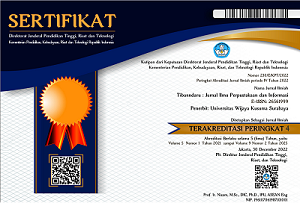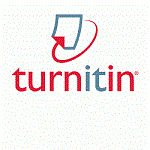- Focus and Scope
- Section Policies
- Publication Frequency
- Open Access Policy
- Publishing Ethics
- Publication Fee
- Open Access Statement
- Plagiarism Policy
- License Term
Focus and Scope
Tibanndaru Journal: Library and Information Science covers scientific fields related to library and information science, archives, and other relevant areas of study. The scope of research that can be accepted in Tibanndaru Journal: Library and Information Science includes;
- classification and cataloging
- digital library,
- information retrieval tools,
- academic libraries,
- school libraries,
- special libraries,
- information sources and services,
- information science
- integrated library system,
- bibliometrics,
- webometrics,
- informetrics, scientometrics,
- ICT in the library,
- archive science,
- documentation,
- information management systems,
- Library service,
- Library management,
- Literacy
Section Policies
Articles
Publication Frequency
Tibanndaru Journal Published two periods a year, in April and October
Open Access Policy
This journal provides immediate open access to its content on the principle that making research freely available to the public supports a greater global exchange of knowledge.
Publishing Ethics
Journal Manager Task
As the manager of the journal, the Department of Library and Information Science at Wijaya Kusuma University Surabaya must stand as the guardian of scientific papers published by the journal. The journal manager must fully support the great efforts made by the editor. As a peer-reviewed journal, journal managers must build solid communication with reviewers, and also writers.
Editor's Duty
Publication Decision
The journal editor is solely responsible and independent to decide which articles are sent to the journal to be published.
Peer Review
The editor must ensure that the peer-review process is fair, impartial, timely. Research articles usually must be reviewed by at least two external and independent reviewers. Editors must maintain good communication with reviewers.
Fair game
The editor must evaluate the text for their intellectual content regardless of race, gender, sexual orientation, religious beliefs, ethnic origin, nationality, or the political philosophy of the author.
The editor must use a standard journal electronic delivery system for all journal communications.
The editor must establish, together with the journal manager, a transparent mechanism for appealing against editorial decisions.
Review Task
Contributions to Editorial Decisions
Peer reviews help editors in making editorial decisions and through the editorial communication with the author can also help writers improve their papers. Peer reviews are an important component of formal scientific communication and are at the core of the scientific method.
Confidentiality
Reviewers must save documents received as confidential documents. They may not share reviews or information about the paper to anyone or contact the author directly without permission from the editor.
Standard Objectivity and Interest Competing
The review must be carried out objectively. The reviewer must know of any personal biases they may have and consider them when reviewing the paper. Personal criticism of the author is inappropriate. Referees must express their views clearly with supporting arguments.
If the reviewer suggests that the author include a quote into the work of the reviewer (or partner), this must be for genuine scientific reasons and not with the intention of increasing the number of review citations or increasing the visibility of their work (or their partners)).
Author's Duty
The author must ensure that the manuscript does not violate any copyright laws, and must compensate the journal editor and manager for any copyright infringement. It is the responsibility of the author to obtain permission to use copyrighted material and provide such evidence after submitting the manuscript.
Publication Fee
Tibanndaru: Jurnal Ilmu Perpustakaan dan Informasi doesn't charge author(s) APCs (Article Publication Charges), submission charges, or another fee. All processes of article publication are free of charge.
Open Access Statement
Tibanndaru: Jurnal Ilmu Perpustakaan dan Informasi publishes fully open access journals, which means that all articles are available on the internet to all users immediately upon publication. Non-commercial use and distribution in any medium are permitted, provided the author and the journal are properly credited.
Benefits of open access for authors include:
- Free access for all users worldwide
- Authors retain copyright to their work
- Increased visibility and readership
- Rapid publication
- No spatial constraints
Plagiarism Policy
Tibanndaru: Jurnal Ilmu Perpustakaan dan Informasi Editorial Board recognizes that plagiarism is not acceptable and therefore establishes the following policy stating specific actions (penalties) when plagiarism is identified in an article that is submitted for publication in Tibanndaru. Plagiarism Checker tools use is Turnitin.
License Term
The non-commercial use of the article will be governed by the Creative Commons Attribution-ShareAlike license as currently displayed on https://creativecommons.org/licenses/by-nc-sa/4.0/.



.png)







